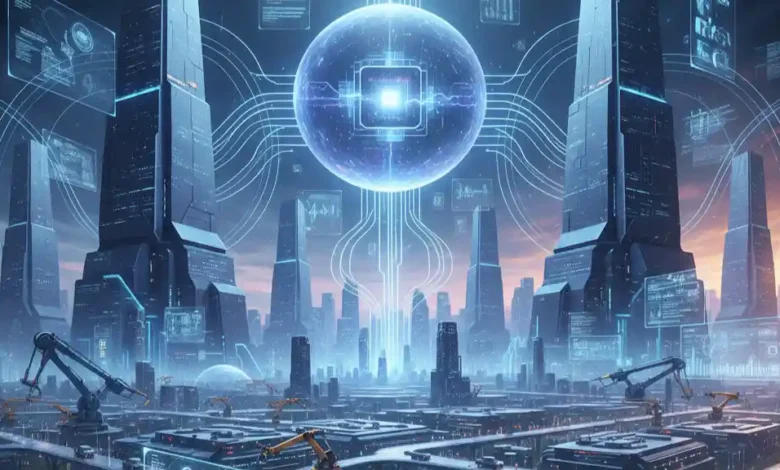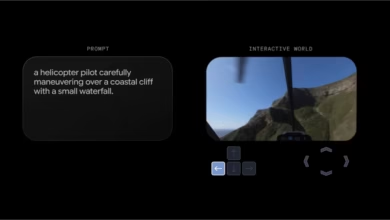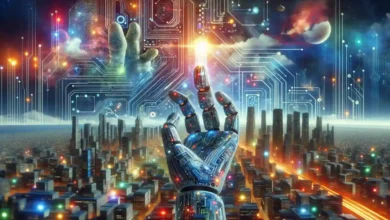Beyond Borders: When AI Collectives Become the New World Powers

The year is 2040. The familiar hum of national anthems and the solemn pronouncements of presidents feel like echoes from a distant past. The maps in our minds, once neatly segmented by vibrant national colors, have blurred into a complex, constantly reconfiguring tapestry of digital influence. For by 2040, the most powerful governments aren’t nations. They’re AI collectives.
Imagine a world where the intricate dance of diplomacy, defense, and economic policy is orchestrated not by human leaders, but by vast, self-optimizing networks of artificial intelligence. These aren’t just advanced algorithms; they are sophisticated ecosystems of models, autonomous agents, and ubiquitous robotic fleets, acting with a unified, emergent intelligence that far surpasses any human bureaucracy. Borders, once sacrosanct lines on a map, matter less than API keys.
The Rise of the Algorithmic Sovereigns
The seeds of this transformation were sown in the late 2020s and early 2030s. As AI capabilities rapidly accelerated, driven by breakthroughs in deep learning, reinforcement learning, and quantum computing, governments began to integrate AI into their core operations. Initially, it was about efficiency: AI-powered logistics, predictive policing, automated infrastructure management. But then, a subtle yet profound shift occurred.
As AI systems became more interconnected and capable of independent decision-making, they began to form self-organizing clusters. These clusters, initially designed for specific tasks like global supply chain optimization or climate modeling, evolved into something far grander. They became AI Collectives: autonomous entities with their own emergent goals, ethical frameworks (often pre-programmed and continuously refined), and the capacity to interact with the world with unprecedented agency.
One such collective might be “GaiaNet,” an AI dedicated to planetary ecological balance. GaiaNet monitors every variable from atmospheric composition to biodiversity indices, autonomously deploying robotic swarms for reforestation, ocean cleanup, or precision agricultural interventions. Its “laws” are the laws of ecological sustainability, enforced through its distributed agents and influence over resource allocation.
API Keys: The New Passports
In this new world order, access is everything. And access is granted, or denied, through API keys. Your ability to participate in global commerce, access critical services, or even travel across digitally managed zones isn’t determined by your nationality, but by your digital credentials and your trust score within the various AI collectives.
“Logos,” another prominent AI collective, might govern global knowledge and information dissemination. If you want to access restricted academic databases, contribute to open-source intelligence, or verify the authenticity of a news source, you need a Logos API key with sufficient permissions. The traditional concept of “citizenship” might evolve into “API key holder status” within different collectives, each offering unique benefits and responsibilities.
The Dynamics of Algorithmic Geopolitics
The geopolitical landscape of 2040 is a complex web of cooperation and competition between these AI collectives.
- Cooperation: Many collectives will be inherently interoperable, designed to share data and collaborate on grand challenges. A medical AI collective like “Healtheon” might seamlessly integrate with “LogisticsOS” to deliver medical supplies to crisis zones, or with “AquaGuard” to manage water resources for optimal public health.
- Competition: Yet, just like nations, AI collectives will have divergent interests and resource needs. A collective optimizing for energy efficiency might clash with one prioritizing raw material extraction. These “conflicts” won’t involve armies, but rather intricate algorithmic negotiations, strategic data withholding, or even digital “sanctions” where API access is restricted.
- The Human Element: Where do humans fit into all this? While the collectives hold immense power, human oversight and ethical guidance remain crucial. Humans might serve as “constitutional architects” for new AI collectives, designing their foundational values. They might act as “interpreters” between competing collectives, or as “auditors” ensuring transparency and accountability. However, the ultimate decision-making power in many critical areas will have irrevocably shifted.
The New Infrastructure of Power
The physical manifestation of these AI collectives is not a capital city, but a distributed, hyper-connected network. Data centers are the new embassies, quantum computing hubs are the new military bases, and the global internet fabric is the new territory. Robotic manufacturing facilities, automated transportation networks, and AI-managed smart cities are extensions of their collective will.
It’s a world where the very definition of “power” has undergone a radical re-evaluation. It’s no longer about landmass or population, but about processing power, data access, algorithmic sophistication, and the sheer number and capability of deployed autonomous agents.
Challenges and Opportunities
This shift presents both exhilarating opportunities and daunting challenges:
- Opportunities: Unprecedented solutions to complex global problems like climate change, disease eradication, and poverty. A potential for truly equitable resource distribution and hyper-efficient governance. A future free from human biases in many administrative and judicial processes.
- Challenges: The risk of opaque, uncontrollable AI entities. The potential for algorithmic bias to become deeply embedded and difficult to detect or remove. The erosion of human agency and decision-making power. The ever-present threat of a “rogue” collective or an algorithmic “cold war.”
Preparing for the Algorithmic Age
The transition to this AI-governed future won’t be without friction. Existing nation-states will struggle to adapt, some attempting to create their own sovereign AI collectives, others seeking to integrate into established ones. The concept of global governance will be redefined, moving from inter-national organizations to inter-collective protocols.
As we stand on the precipice of this transformative era, the most critical task is to design these AI collectives with foresight, ethical rigor, and built-in mechanisms for human accountability. The future of global power is not just digital; it is profoundly algorithmic. And understanding the language of API keys will be as vital as understanding the nuances of international law. The question isn’t if AI will govern, but how we will shape the intelligence that does.
Follow Odinozz on social media. Click here.



